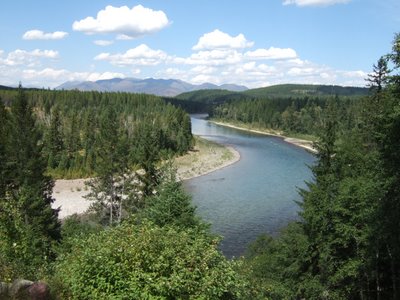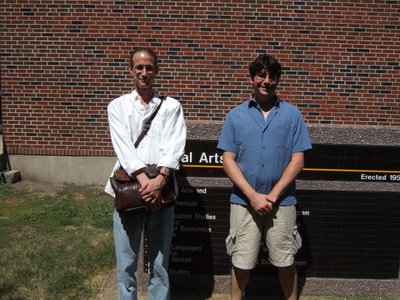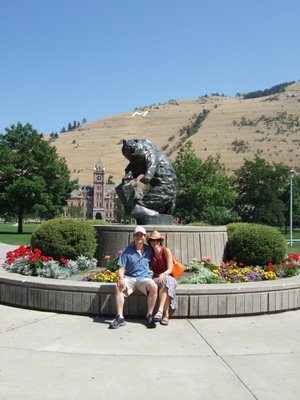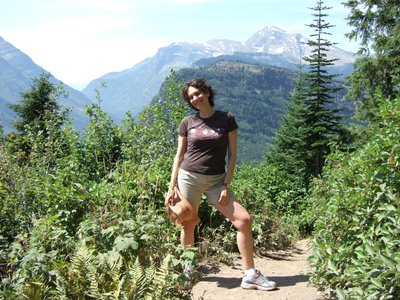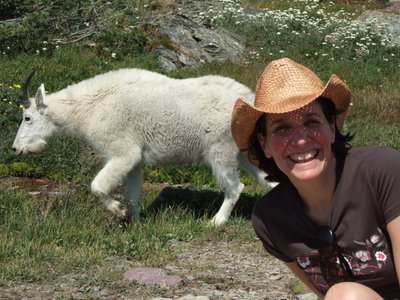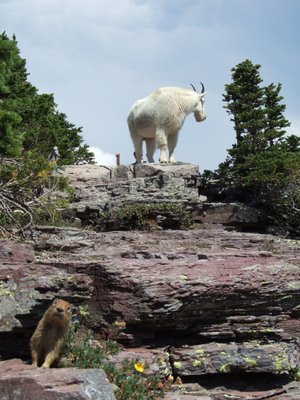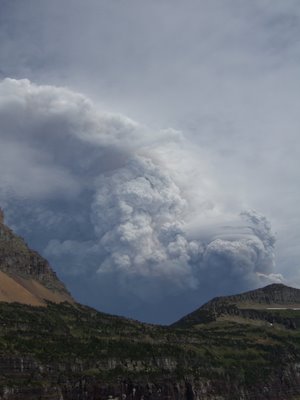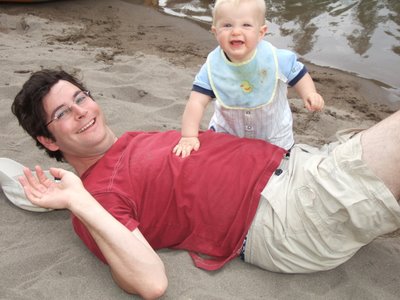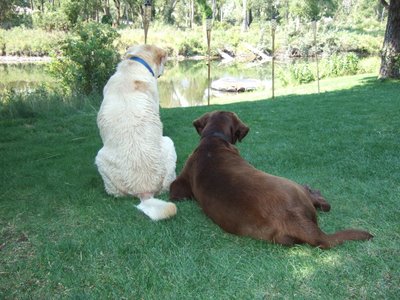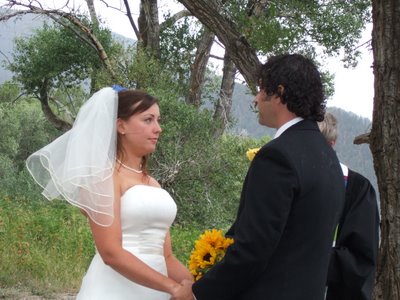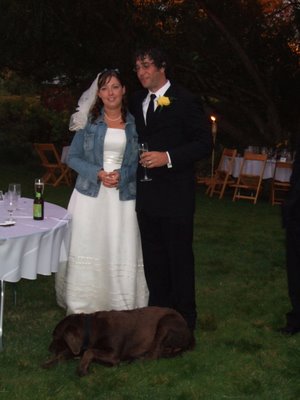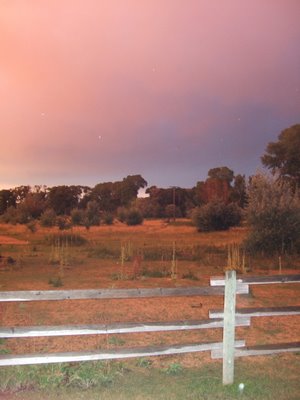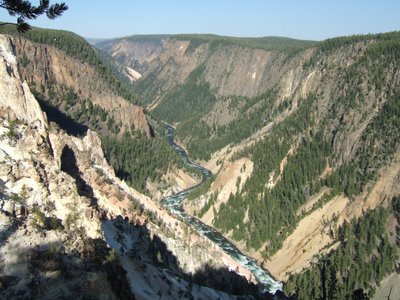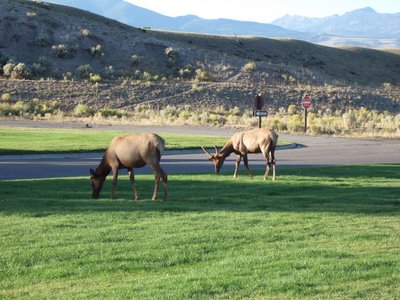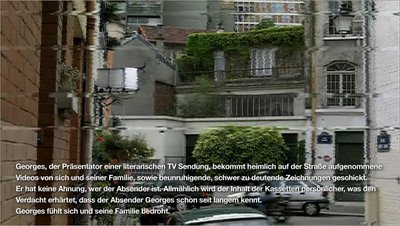 Films don't come much more unsettling than Michael Haneke's Caché, which I took in at Cornell Cinema (this is starting to become a habit) last night before dropping in on the English department's annual meet-n-greet party at the A.D. White House. It's a film about complicity: the individual's complicity with history and with the political policies of his nation, and the complicity of the viewer with what happens on screen. We never learn who's making the mysterious videotapes that push Georges and Anna off their complacent bobo perch, though the infamous closing shot suggests a mysterious collusion between their son Pierrot, and the son of the unfortunate Majid, an Algerian orphan whom Georges spitefully disenfranchised when they were both children. This mystery remains a provocation and irritant that lingers after the film has ended, mimetic of the bad conscience that Georges' private-eye antics fail to solve, and which can ultimately only be assuaged by sleeping pills.
Films don't come much more unsettling than Michael Haneke's Caché, which I took in at Cornell Cinema (this is starting to become a habit) last night before dropping in on the English department's annual meet-n-greet party at the A.D. White House. It's a film about complicity: the individual's complicity with history and with the political policies of his nation, and the complicity of the viewer with what happens on screen. We never learn who's making the mysterious videotapes that push Georges and Anna off their complacent bobo perch, though the infamous closing shot suggests a mysterious collusion between their son Pierrot, and the son of the unfortunate Majid, an Algerian orphan whom Georges spitefully disenfranchised when they were both children. This mystery remains a provocation and irritant that lingers after the film has ended, mimetic of the bad conscience that Georges' private-eye antics fail to solve, and which can ultimately only be assuaged by sleeping pills.When I see a film which privileges its technique and formal qualities over the usual Hollywood values, my thoughts turn to poetry, as with Days of Heaven (another film with class privilege on its mind) last week. Whereas Malick's film had the lushness and interiority of lyric, Haneke's self-conscious deployment of digital video, which turns the camera back on its habitual wielders far more effectively than "reality TV" does, makes me think of more those austere modes of modernism in which personal history and more global histories are made to interact so the reader can trace his or her own habits of constructing them. The example that comes to mind (and which affectively mimics both Haneke's coolness and his moral disgust) is Barrett Watten's Bad History, which among other things is an examination of the bankruptcy and exhaustion of the generation of '68 and of what is coming increasingly to look like an aberrant moment of spiritual expansion that has, like Majid's rooster, had its head chopped off and whose twitches are decreasingly lifelike. I also think of Bruce Andrews and of flarf—or rather of a poetry that could somehow succeed in re-presenting the word salad of our lives back to us in all its unalienated dismajesty, so that we recognized the world we have made. In other words, it's too easy to dismiss flarf as Other, as not our language, as something we personally privileged readers have no responsibility for. But maybe that's not flarf's fault, or art's fault—even watching Caché I found myself agreeing somewhat with Georges that he couldn't be blamed for something he did when he was six. But then that's the problem of responsibility: we've all been trained not to see ourselves as part of history, or to recognize the ways in which we've benefited from the horrors of primitive accumulation. (My great-great grandfather might have been dodging Cossacks in Russia, but that doesn't mean I haven't indirectly benefitied from the wealth extracted from American slave labor, for example.) Art falls short of moral instruction: it can only prick your conscience if you have one. Far from being a shortcoming of art, this points toward the failure of an education system and a culture which ruthlessly exports all "values" into the nuclear domestic heterosexual family. The aesthetic does include and require the ethical, but through the back door. What Haneke's film does, like Watten's poem, is show us how rotten the facade of the house is.


